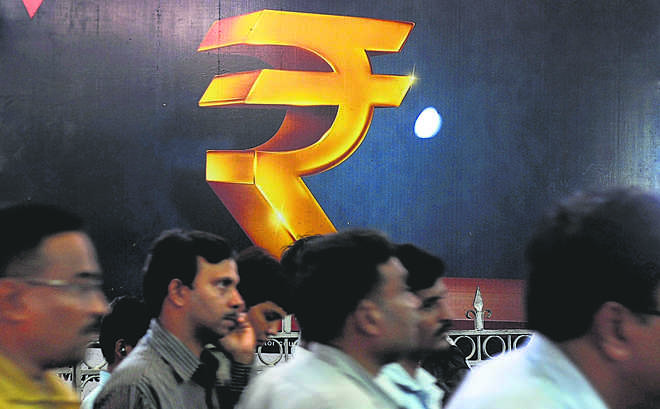Corruption biggest factor behind poverty
Rachna Singh
The release of the report by the Expert Committee constituted to review the Economic Export Capital framework of the Central Bank and the unprecedented transfer of Rs 1.76 lakh crore by the RBI to the government, prompted by the recommendation of the committee has set the cat among the pigeons. Whatever the political naysayers might say, it is largely believed that such a transfer will give the languishing economy a much-needed stimulus and put the fiscal deficit unease to rest. The review committee was headed by none other than Dr Bimal Jalan, an economic stalwart and former Governor of the RBI as well as author of a slew of books on the Indian economy.
Dr Bimal Jalan's recently released book Resurgent India: Politics, Economics and Governance, hence gains contemporary relevance and melds seamlessly with the ongoing debate on India's approach to its economy in the twenty-first century.
Resurgent India is a sequel to Dr Jalan's book, Emerging India, released in 2012. While the earlier book traced the path of economic liberalisation and dissected the various economic policies, Resurgent India points the way forward in the spheres of politics, economics as well as governance. The book dwells upon and highlights the strengths of the Indian democracy which survived dissension and discord to emerge as a role-model for peaceful transfer of power from one government to another consequent upon a popular mandate. That most of the voters are from the poor and rural strata of society adds another feather to India's democratic cap.
The Seventy-third amendment to the Constitution added a new tier of local government, the gram panchayats, consolidating and strengthening the democratic edifice. The book also acknowledges the steady progress made by the Indian economy which till very recently was reflecting a steady average growth rate of 7 to 8 per cent per annum.
However, the book is not just a rosy account of the Indian democracy and its economy, but also makes an honest appraisal of the drawbacks that are holding India back from forging ahead as a global power. Dr Jalan identifies political opportunism, politicisation of bureaucracy and bureaucratic corruption as the major burrs.
However, he does not restrict the book to simply a criticism of the current systems in place. The author, instead, clearly outlines the framework of political, economic and administrative reforms that are needed to make the country achieve its vast potential. Dr Jalan suggests a redefining of the administrative role of the government such that the focus is on ensuring availability of public goods and essential services with a corresponding reduced role in managing commercial enterprises.
Transparency in decision-making process within the government, reduction in discretionary powers of ministers in the allocation of public resources, establishment of a Federal commission, along the lines of the Finance Commission, are suggestions that will, metaphorically speaking, rock the boat but are the need of the hour.
The suggestion that appointments to autonomous institutions and regulatory bodies should be entrusted to specialised bodies and have fixed terms of office will also be met with resistance but is needed to revamp the present inefficient corruption ridden systems.
The chapter, Corruption Barometer, will perhaps engage the general reader the most. The author bewails the fact that corruption, political as well as bureaucratic, has been accepted as a ‘necessary evil’. He also expounds on the economic effects of corruption and believes that it has become the biggest factor contributing to the 'poverty trap' in developing countries.
His advice to remove bureaucratic corruption is simple — across the board shearing of civil servants, pruning the deadwood, reducing number of agencies providing clearances for undertaking industrial economic activities and most importantly ensuring that bureaucrats can work without political fetters and the fear of being transferred out if they do not toe the political line.
For removing political corruption, his suggestions are valid - political offices should be made less attractive in terms of display of power, ostentation, personal staff surrounding them; tarnished politicians should not be allowed entry into the Parliament, and funding of political parties should be transparent. All such suggestions come as a much-needed breath of fresh air.
A book that encourages introspection about the ills that have beset the political and economic systems but also points the way forward out of this morass with a sanguine belief that it can be done if the people as well as the government have the will to do so.









